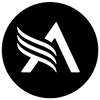
Mark Siemers
EVP
Director of Engineering at
Measurabl, on...
Preventing existential dread at work.
Antidotes for toxic positivity.
The power of using time blocks.
High-ROI ways to find and recruit talent.

Let’s start with what you’re up to at Measurabl. What problems is Measurabl solving?

Measurabl is helping commercial real estate companies make it possible to implement ESG policies - ESG being Environmental, Social and Governance. We're big on the “E” part of that. Commercial real estate uses a huge amount of energy and is responsible for a huge percentage of the world’s carbon emissions.
Measuring and managing commercial real estate emissions was basically an unsolved problem because there are all kinds of different ways to get utility data and information, but it's not easily accessible and then once you scale up to thousands of buildings it becomes a nightmare. And then how do you benchmark against the industry, how do you figure out what projects are going to be the most impactful?
Measurabl is providing data in a way that previously didn't exist for decision makers and can influence the entire world of real estate. We help companies get from "We don't even know where we are!" to "We know precisely where we are and we know exactly how much we've improved."

That sounds like really meaningful work with a big impact! What brought you to Measurabl?

I joined Measurabl because I thought what they were doing was interesting and meaningful. Sustainability is close to me, so I think about the impact that I can have by doing things like composting, recycling, buying an electric car, things like that. However, if you listen to a lot of podcasts about sustainability, you very soon realize that you can take your personal carbon footprint to zero and it's as close to meaningless as you can imagine, which it's a little bit disheartening, but the numbers are there.
At Measurabl, we're affecting the decisions that are made with trillions of dollars. We might not be taking the carbon footprint to zero, but the pool of change that we're affecting is massive. The impact is large enough that it should change the world.
That's motivating to me. I could dedicate my entire life to minimizing my own carbon footprint and it would have less impact than what I'm doing at work.

What impact does Measurabl’s mission have on your engineering team?

Let's see. How can I answer this? I can give a personal answer and then maybe assume that it applies to other people on our team as well.
With any job or any work you're going to have bad days and there's going to be stressful situations. Even if most days are great - and at Measurabl a lot of them are good - you don't ever get that existential dread of: "What am I even doing with my life?” Even when it's a bad day, you can remind yourself that it’s important work and there is a reason to be doing it.
When it comes to teamwork and collaboration, I think it's the same thing. It enables frank conversations or tough debates, but because there's this common worthwhile goal you can assume positive intent. You don't think that there's a hidden agenda or something like that.

How has Measurabl found success in growing your team of developers? What are some of the strategies that have worked for you in a difficult market for talent?

So it's not news that it's a difficult market to hire tech employees, right? There are just more jobs than there are applicants and it can be challenging to differentiate yourself as an employer. We struggle like everyone else; it takes time to fill positions, all of that. The success that we have had has been from leaning on a few familiar tools. We have had way more success in three areas compared to just posting a job and hoping good candidates come in.
First, from an ROI perspective, recruiters are definitely worth the money for certain hires, particularly more senior level positions. It can save a lot of time and that time would cost you way more than a commission. For example, say that without a recruiter it takes you 6 months to fill a key role; that’s a lot of management time spent reviewing resumes and going through interviews that go nowhere, plus now you're also six months behind going to market. This has to dwarf whatever you would pay a good recruiter.
Second, referrals have also been very fruitful for us. Like a lot of companies, we offer a referral bonus (I think it’s $2,000) and, most importantly, it’s not a secret. We talk about our open positions at company meetings every week and promote them in our Slack channels. But sometimes it does take a direct question, especially to your best hires: "Hey, we need a mid-level Rails developer, that's what you are, do you have a former coworker that you think would be a good fit here?" That prompt helps because the relevance can get lost in a list of 10 positions. Sometimes you just have to ask.
And then the bootcamp route. I used to teach at a bootcamp, so I understand the pros and cons of hiring a bootcamp grad versus a traditional Computer Science grad. We recruit from bootcamps and have internship programs to let people essentially try out the company while you try them out.
In any of these channels, speed is very important. We're in a market where you can't leave a candidate waiting. They have other opportunities. It's just that's where we are right now.

How do you evaluate technical proficiency when you’re interviewing developers?

So this has evolved over time and I can't say that we have it totally figured out. I don't think anyone does. We’ve settled on a take-home challenge and we purposely leave some ambiguity or flexibility with how you choose to spend your time and what you implement.
It’s meant to test if a candidate can take a 70% well-defined task, use discretion to make decisions, write down why they made those decisions, and be able to communicate them. That way I can understand why they did what they did and get some insight into whether they can make good decisions.
Even if they aren’t the decisions that I agree with, I know why they made them and we can have a discussion about it, because that's what I want to happen on the job.

Measurabl is transitioning from a hybrid model to being fully remote, right? What are some of the approaches to managing a remote team that have worked for you?

We are in a transition period and one of the things we’re trying to figure out is if it makes sense to structure the work day in the same way we did when we were in person (or “headquarters-first”).
Regardless of location, I very much try to guide developers to structure their day so that they are specifically focused on one thing at a time - using time blocks. Everyone has a core number of hours of meetings a week that they need to block in, but the rest of the schedule is theirs, and I encourage them to put in time blocks for the important pieces in and out of work.
I think it’s important to block off when you're doing your focus work, so nobody schedules a meeting then. And by the way, to us that means: do not have Slack or email open during a programming block. When you're solving a problem, you're solving a problem; you’re not responding to other people, you're not communicating. Of course, you also have to dedicate time to communicating with other people!
Then, if someone wants to be out of the office every Wednesday from 2-4 for whatever reason, they’re empowered to block that off so nobody schedules a meeting then.
Overall, we’re trying to give people tools to extract all the benefits that you can from remote work.

You have a background both in business as well as technology. How does that come into play when leading development teams?

I think that the business background probably has historically helped me most in terms of interfacing with my managers and stakeholders.
I’m constantly thinking about trade offs, pros and cons, and return on investment. Plus, I’m comfortable giving a presentation to a room full of people or the board of directors.
Being able to advocate for my team and choose projects that make sense and have value, that's really where it's played in. Choosing the right projects so that people are working on something valuable is really motivating.

What else do you think is important, in terms of fostering a positive culture among your team?

We have a couple things that differentiate us from other places. One is that there's a lack of what you would call “toxic positivity.” I think that both hiring for it and leading by example are what help foster it.
People are honest with each other in a way that is not detrimental to relationships. When you walk away from a conversation or a debate, you know that people didn't hold back. Now it doesn't mean that it's always friendly conversations, right? Sometimes there's debates and there's disagreement, but you know where people stand and that builds trust.

What are some of the opportunities that lie ahead at Measurabl? What does the future look like?

My team is actually launching a new proprietary data product. There are many players in capital markets that are very interested in using the data that we have or that we can derive and then performing analysis to make decisions on financial performance. We have proprietary energy estimates and carbon estimates; you can’t get those from anyone else. The product we’re building helps bridge the gap between non-financial data and financial data.
There's a hunger for this and it is new. There are some people that really want to be out ahead and get the information. They understand that because it's new, it's going to be a journey for us over this next year while we really work to get it right. They want to talk to our data scientists, and they want to know how we come up with it, and they want to validate and grow this product with us.
We want to be first to market and the overall goal for it is that our data is considered for every major commercial real estate transaction.
 NEXT CONVERSATION
NEXT CONVERSATION
